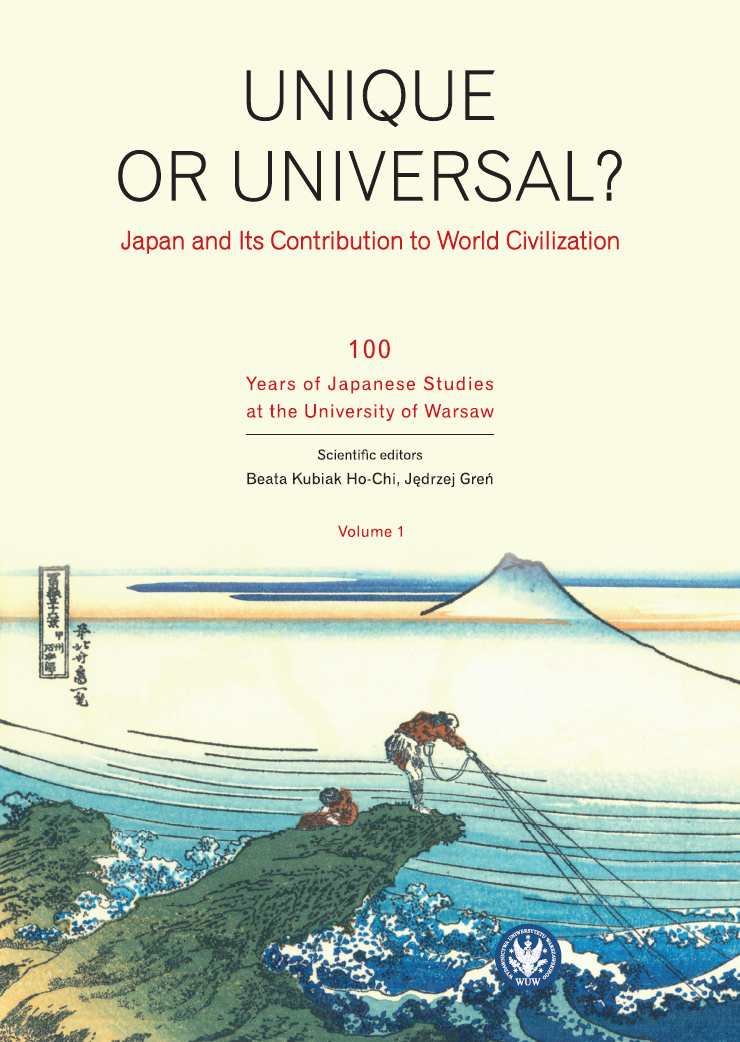Unique Customs of Universal Meaning – Japanese Etiquette and the English East India Company (1613–1623)
Unique Customs of Universal Meaning – Japanese Etiquette and the English East India Company (1613–1623)
Author(s): Jędrzej Greń
Subject(s): Studies of Literature, Other Language Literature, Philology
Published by: Wydawnictwa Uniwersytetu Warszawskiego
Keywords: gift; English East India Company; John Saris; Richard Cocks; Samuel Pepys; merchants; Japanese customs
Summary/Abstract: The mission of the English East India Company arrived in Japan in 1613, and their factory there operated until 1622. During this time, the personnel of the factory usually competed with other Europeans for the favors of the local Japanese officials who could influence their trading revenues. In order to facilitate their communication with the locals, the English merchants adopted significant parts of Japanese social etiquette. The local customs which were included in the daily routine of the factory were mostly related to gift-giving practices, which were used to strengthen the factory’s relations. In this paper, I use both Japanese and English historical sources to investigate whether the intentional adoption of Japanese customs gave the English a better chance to fulfill their goals and try to determine whether those customs, from the point of view of the English merchants, really were unique tools of communication.
Book: Unique or universal. Japan and its Contribution to World Civilization. Volume 1
- Page Range: 133-150
- Page Count: 18
- Publication Year: 2023
- Language: English
- Content File-PDF

